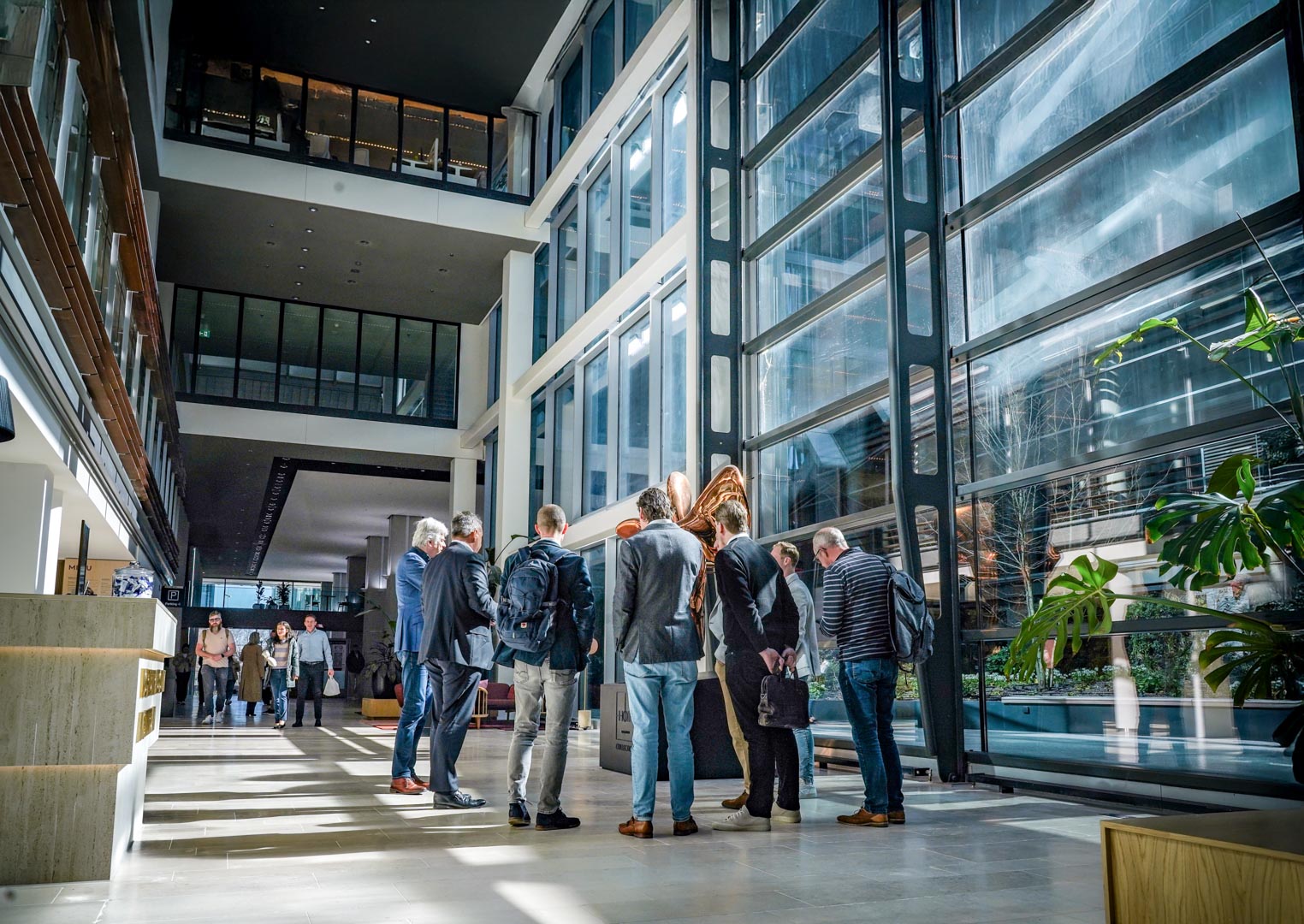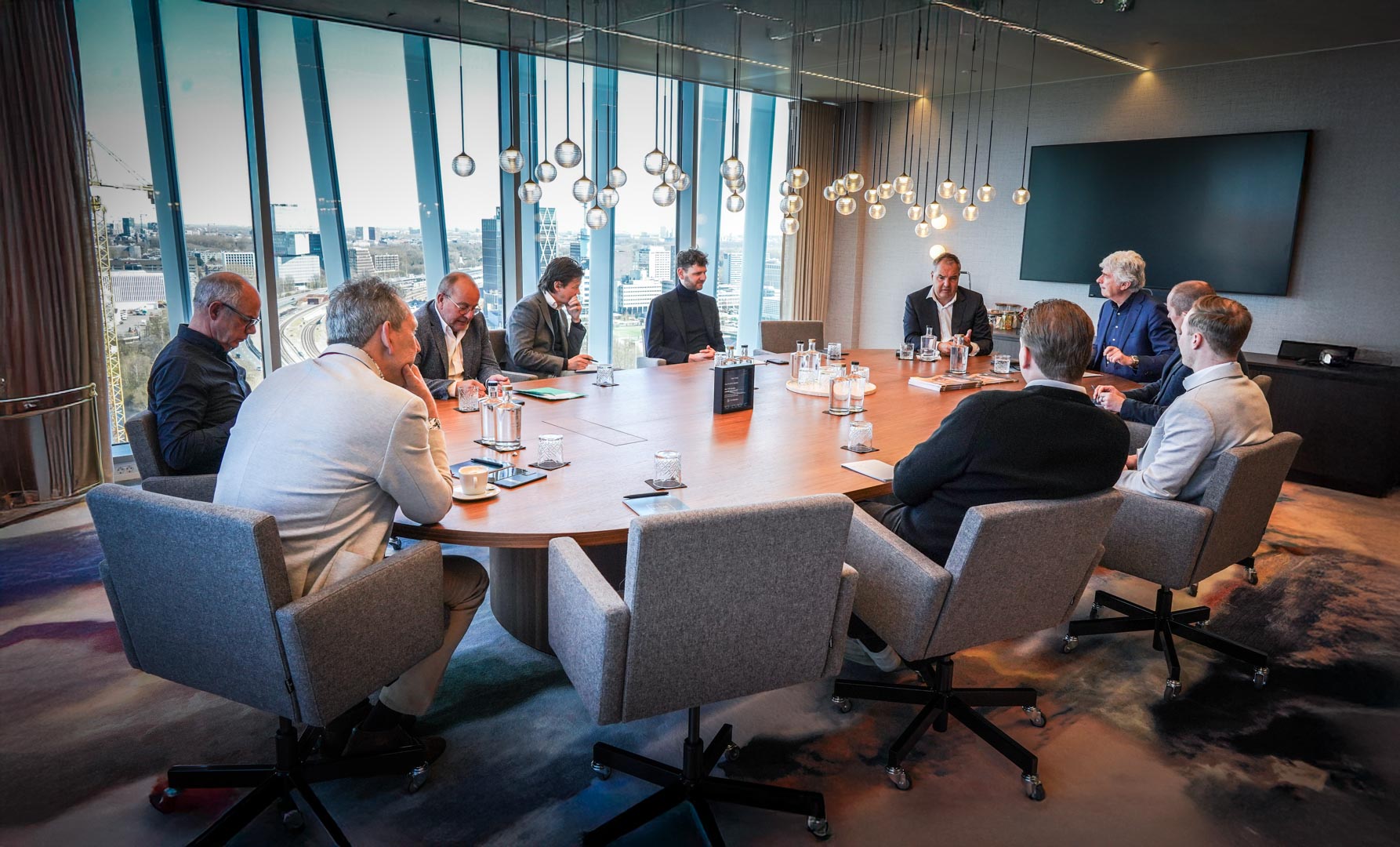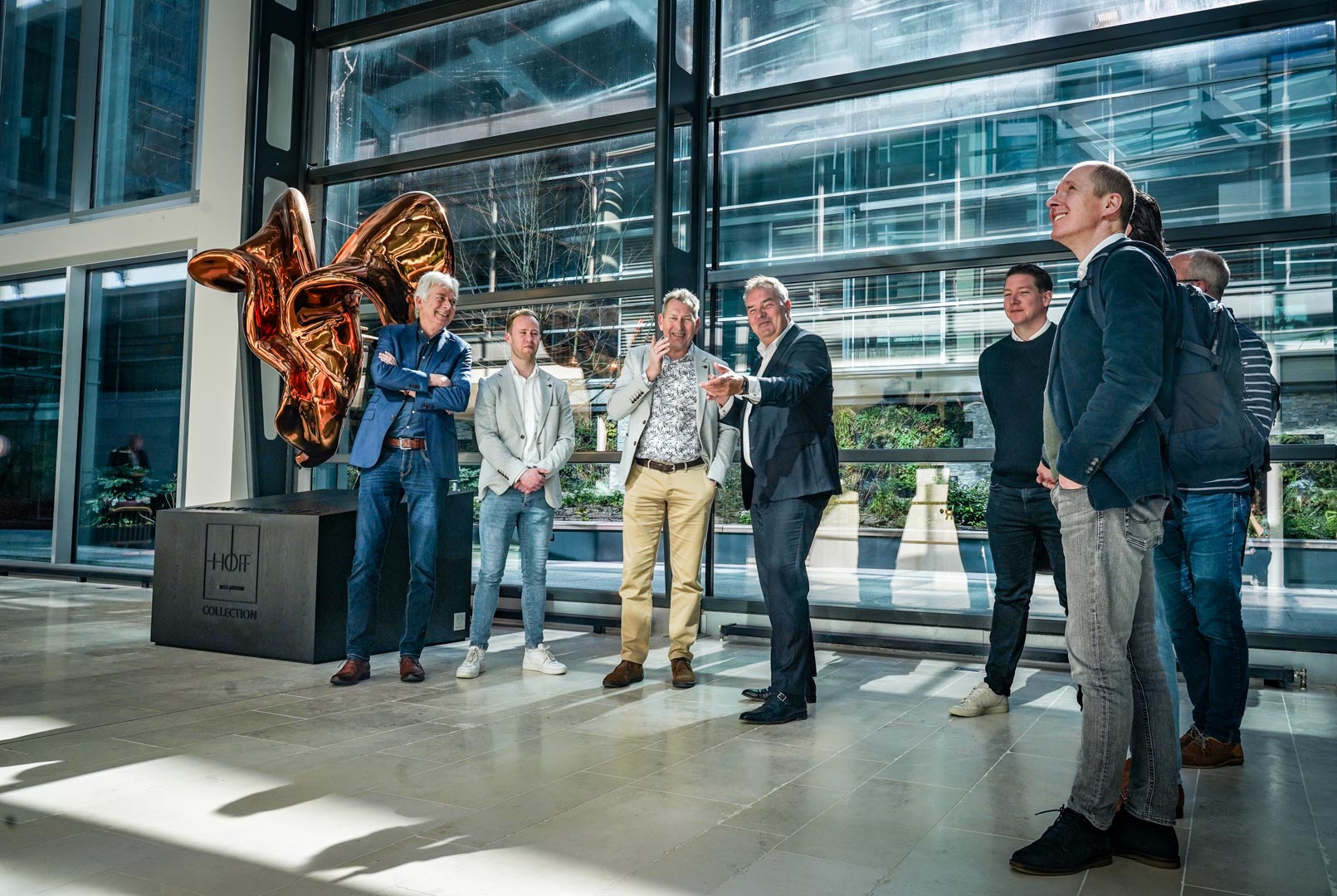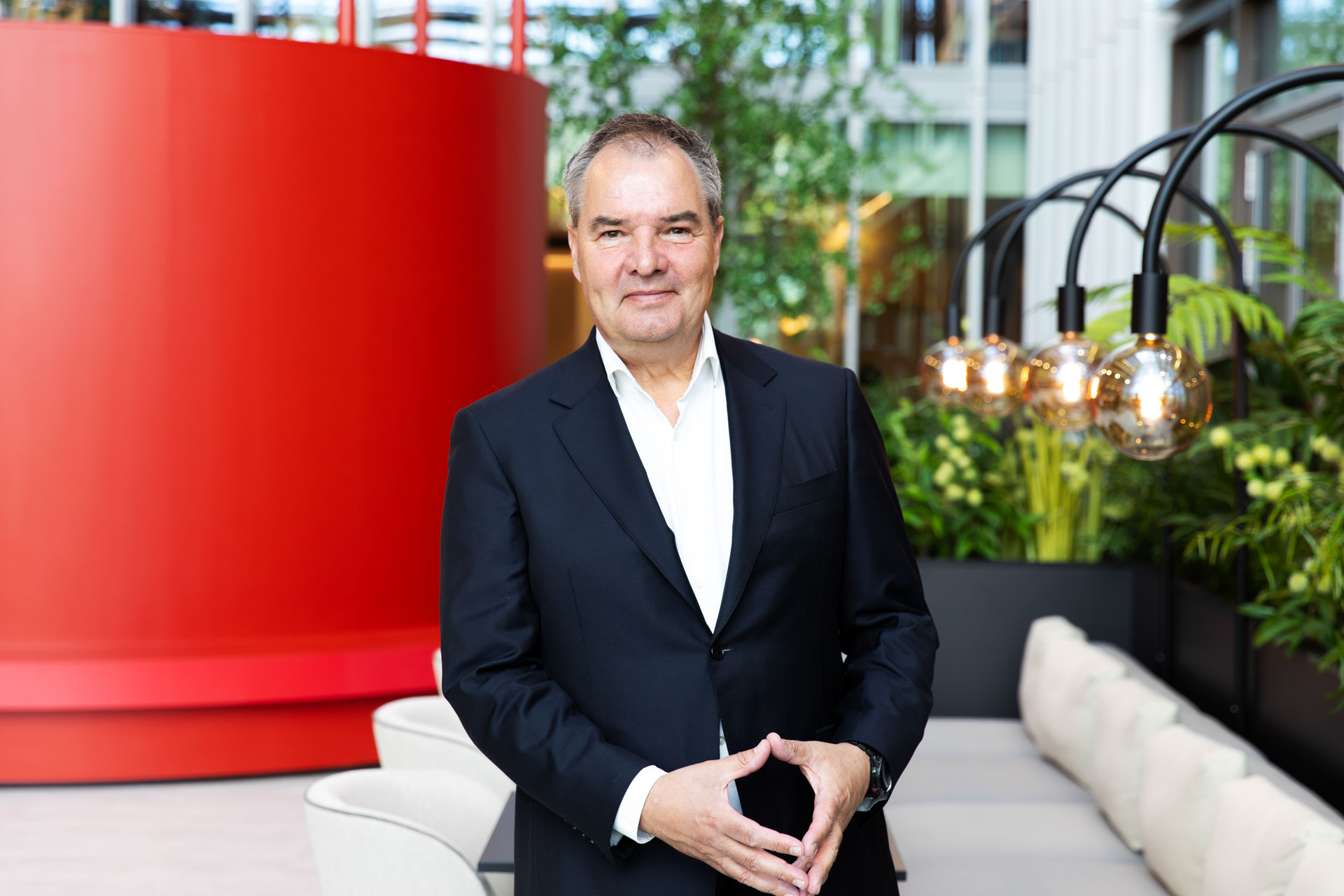
How do we create workplaces that are as flexible as the way we work today?
Hybrid working is no longer a temporary trend - it is the new reality. During an inspiring roundtable at HOFF Amsterdam, experts from real estate, facility management and housing talked about the big changes needed to future-proof offices.
1. Rigid rental models no longer work
Where previously five- or 10-year leases were the norm, the dynamics of hybrid working now demand shorter and more flexible leases. Organizations want the ability to scale up or down quickly, depending on their space needs. Variable contract forms, shared spaces and "all-in-one" concepts are therefore gaining strong popularity.
2. The Tuesday-Thursday economy demands creative solutions
The preference to go to the office en masse on Tuesdays and Thursdays creates peaks in occupancy as well as vacancies. Companies need to be much smarter about the layout and use of their office spaces. Think of flexible workplaces, stimulating spreading out over the week and even opening up spaces for external use on quiet days.

3. Technology must move with users
Many existing office buildings are designed for standard situations: fixed temperatures, fixed lighting, fixed layouts. That hinders the ability to really adapt spaces to the changing needs of users. More customization, smart installations and user-controlled settings are needed to keep offices attractive and sustainable.
4. Hospitality is the new norm
Employees and visitors expect an office experience that is welcoming, flexible and inviting - similar to a good hotel. This requires a change in mentality: not only thinking from facilities, but especially from the user's experience. Comfort, choice and service make the difference
5. Collaboration as a reason for success
Flexible work environments do not come about by themselves. They require better cooperation between HR, Facility Management, property managers and tenants. Only together can you make smart choices about design, technology, costs and user experience. The use of data and artificial intelligence here can also provide additional insight into work patterns and space usage.

Summary
The work environment of the future is agile, people-oriented and technologically supported. Flexibilization is not a trend, but a strategic choice to bind employees and keep operating costs manageable.
More info? Read the full report of this fascinating Round Table session.

Are you curious about our dynamic rental models?
Spar about it with Reinier. Reinier helps you create a sustainable and flexible hybrid work environment.

